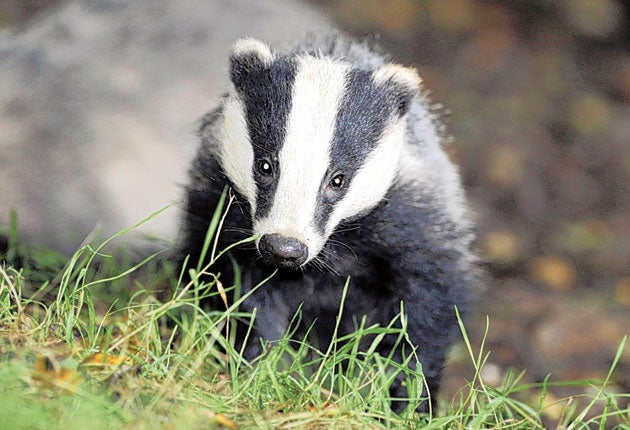Badger cull to prevent TB in cattle a mistake, says key scientist

Culling badgers to counter tuberculosis in cattle would be a mistake, the leading government adviser on the problem said yesterday, in advance of an expected announcement that a cull is to go ahead.
In remarks that will be embarrassing to ministers, the eminent zoologist Lord Krebs, who as John Krebs wrote the initial report on badgers and TB in 1997, said he did not think culling was "an effective policy".
He said trials had shown that a cull would only reduce the amount of TB in cattle by something in the region of 12 to 16 per cent. "So you leave 85 per cent of the problem still there, and having gone to a huge amount of trouble to kill a huge number of badgers, it just doesn't seem to me to be an effective way of dealing with the disease," he said.
After 15 years of argument, a cull announcement is expected imminently from the Department for Environment, Food and Rural Affairs (Defra).
It is expected that syndicates of farmers will be permitted to hire marksmen to shoot badgers on sight, at their own expense, to help counter the spread of bovine TB, especially in the West Country, where nearly a quarter of all cattle farms are infected.
Although there is likely to be vociferous opposition from the animal welfare lobby and part of the public, Defra ministers, led by the Environment Secretary, Caroline Spelman, have accepted the arguments of farmers that a cull is essential if the disease is to be controlled. The final decision will have to be taken by David Cameron and is due within the next few days.
However, the remarks from Lord Krebs, now principal of Jesus College, Oxford, raise the political stakes enormously in what is already a potential minefield for the Prime Minister, who has trouble enough on his plate with the phone-hacking scandal without alienating large numbers of animal- lovers.
Lord Krebs' remarks are embarrassing because the Government has said it will be led by the science. It was as a result of the Krebs report, which said that there was no doubt that wild badgers did carry TB and did pass it on to cattle, that the Government set up the badger-culling trials, which lasted for more than seven years.
Lord Krebs said he recommended the trials because it was not known whether a cull would be effective or cost-effective, and his view of the issue was only formulated once he had seen the results. While the trials showed culling did have an effect if it was done on a large scale, it was a relatively small one, he said. Asked if he thought a badger cull would be a mistake, he said: "Yes."
He said: "To me the story is pretty straightforward. If you've got a measure that affects 15 per cent of the problem, then you don't focus on that. You focus on something else."
Join our commenting forum
Join thought-provoking conversations, follow other Independent readers and see their replies
Comments
Bookmark popover
Removed from bookmarks